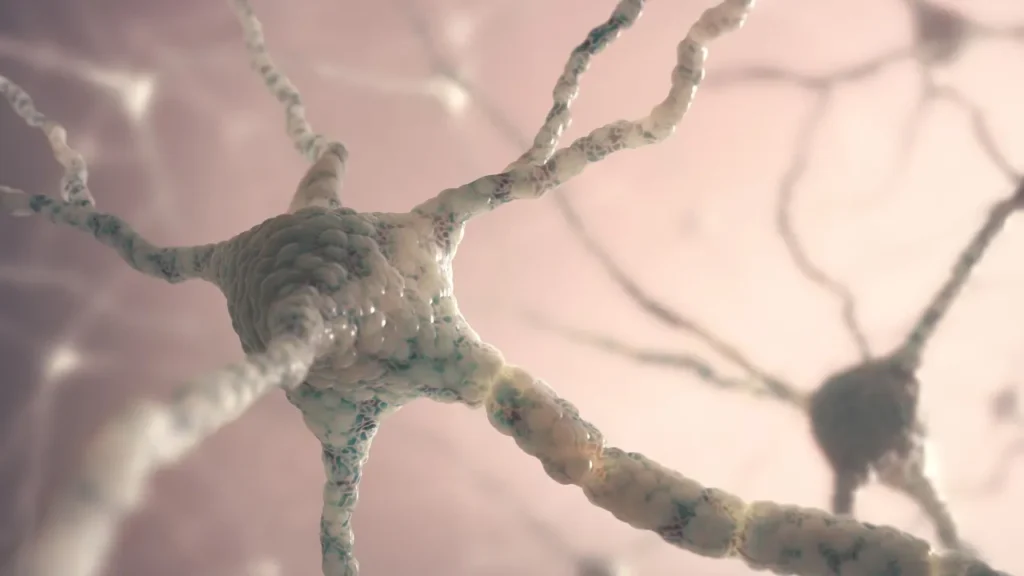Water dropwort (oenanthe javanica), often known as “Chinese celery” or “Japanese parsley,” is a perennial aquatic plant found in East Asia, including China, Japan, and Korea. It is a member of the apiaceae family of aromatic flowering plants, which also contains carrots, parsley, and celery. Water dropwort has been used in traditional medicine for generations, and its possible health benefits have been the focus of substantial scientific research. This article includes a full assessment of water dropwort’s nature, health benefits, ideal dosage, side effects, probable substance interactions, and responsible applications, with a special emphasis on its chemistry and physiological effects on the body and brain.
You May Also Like:
ALPINIA: Benefits, Dosage, Side Effects, Drug Interactions, and Other Important Information
Xanthan Gum: Benefits, Dosage, Side Effects, Drug Interactions, And Other Important Information
Water Dropwort: Benefits, Dosage, Side Effects, Drug Interactions, And Other Important Information is an original (NootropicsPlanet) article.
Nature of Water Dropwort
Water dropwort is a semi-aquatic plant that can be found in wetlands, marshes, and along river and stream banks. It is distinguished by its green, pinnately complex leaves and little white flowers that form umbels, which are umbrella-shaped clusters. The plant’s stems, leaves, and roots are edible and have been used in a variety of East Asian gourmet dishes and traditional medical treatments. Water dropwort’s principal bio-active ingredients are flavonoids, coumarins, and essential oils, all of which contribute to the plant’s various pharmacological properties.
Health Benefits of Water Dropwort
1. Antioxidant and Anti-inflammatory Properties
Water dropwort includes flavonoids such as asnquercetin, kaempferol, and luteolin, which have anti-inflammatory and antioxidant properties. These flavonoids have the ability to scavenge reactive oxygen species (ROS), which have been linked to oxidative stress and inflammation in the body. Water dropwort can help prevent the development of chronic diseases like cardiovascular disease, diabetes, and cancer by lowering oxidative stress and inflammation.
2. Neuroprotective Properties
Water dropwort has additional neuroprotective properties, owing to its antioxidant and anti-inflammatory properties. In pre-clinical experiments, water dropwort extracts have been shown to protect neuronal cells from damage induced by oxidative stress and inflammation, both of which are associated in the pathophysiology of neurodegenerative illnesses such as Alzheimer’s and Parkinson’s disease. Water dropwort can also affect neurotransmitter systems such as the cholinergic and dopaminergic systems, thereby boosting cognitive performance and relieving depression symptoms.
3. Liver Defense
Water dropwort has also been shown to have hepato-protective benefits while in pre-clinical trials, which are ascribed to its antioxidant and anti-inflammatory properties. Water dropwort extracts have been found in liver injury animal studies to reduce lipid peroxidation, modulate inflammatory cytokines, and increase antioxidant enzyme activity. Water dropwort shows potential promise in the prevention and treatment of liver illnesses such as non-alcoholic fatty liver disease (NAFLD) and liver fibrosis, according to this research.

Chemistry of Water Dropwort
Water dropwort includes a wide variety of bio-active chemicals that contribute to its medicinal properties. Among the major compounds are:
1. Flavonoids: Flavonoids such as quercetin, kaempferol, and luteolin are abundant in water dropwort. These chemicals are well-known for their anti-inflammatory and antioxidant effects. They can reduce inflammation and neutralize free radicals by reducing the production of inflammatory mediators such as nuclear factor-kappa B (NF-B) and cyclooxygenase-2 (COX-2).
Water dropwort includes a variety of coumarins, including osthole, imperatorin, and isoimperatorin. Coumarins have anti-inflammatory, anticoagulant, and vasodilatory properties.
3. Essential Oils: Water dropwort is also high in volatile essential oils, which give it its distinct aroma. Compounds in these oils include -pinene, limonene, and myrcene, which have antibacterial, anti-inflammatory, and antioxidant properties.
Physiological Properties of Water Dropwort
Water dropwort contains bio-active substances that influence the body and brain in a variety of ways. The key physiological properties include the following:
1. Antioxidant and Anti-inflammatory Properties: Water dropwort contains flavonoids that can scavenge free radicals and lower inflammation and oxidative stress. They prevent the transcription factor NF-B, which controls the expression of genes associated with inflammation, from becoming active. Additionally, COX-2, an enzyme involved in the synthesis of prostaglandins, an inflammatory mediator, can be inhibited by these flavonoids.
2. Neuroprotective Properties: Antioxidant and anti-inflammatory properties of water dropwort as well as potential regulation of neurotransmitter systems are thought to contribute to its neuroprotective benefits. By boosting the activity of antioxidant enzymes like superoxide dismutase (SOD) and catalase, the flavonoids in water dropwort can protect brain cells from oxidative stress-induced damage. They can also reduce microglial activation, which is a major factor in neuro-degenerative disorders and neuroinflammation. Additionally, acetylcholinesterase (AChE) and monoamine oxidase (MAO) inhibition by water dropwort can alter neurotransmitter systems, such as cholinergic and dopaminergic systems, enhancing cognitive function and reducing depressive symptoms.
3. Hepatoprotective Properties: Antioxidant and anti-inflammatory properties of water dropwort mediate its hepato-protective benefits. Water dropwort contains flavonoids that can lessen lipid peroxidation, which harms liver cells. They can also boost the activity of antioxidant enzymes like SOD and catalase and alter the expression of inflammatory cytokines like tumor necrosis factor-alpha (TNF-alpha) and interleukin-6 (IL-6), thereby sparing the liver from damage.
4. Mechanisms of Vasodilation: By encouraging the generation of nitric oxide (NO), a chemical that relaxes the smooth muscles of blood vessels and lowers blood pressure, the coumarins in water dropwort can cause vasodilation. The putative anti-hypertensive effects of water dropwort can be influenced by this vasodilatory impact.

Optimal Dosage of Water Dropwort
Depending on the precise health advantages being sought after, the manner of administration (for example, dietary consumption, herbal decoction, or supplementation), and individual parameters like your age, weight, and overall health state, the ideal dosage of water dropwort can vary. Water dropwort extract concentrations between 50 and 500 mg/kg body weight have shown to produce a variety of pharmacological effects in pre-clinical tests. However, in order to determine the best dosages for ingestion as well as the security and effectiveness of long-term use, more research and clinical trials are required.
Side Effects of Water Dropwort
When included in a balanced diet and consumed in moderation, water dropwort is typically regarded as harmless. However, excessive ingestion of water dropwort might have negative side effects including stomach upsets like diarrhea, bloating, and pain in the abdomen. Additionally, if you have a history of allergies to different plants in the apiaceae family, such as carrots, celery, or parsley, your body might also react negatively to water dropwort.

Potential Substance Interactions with Water Dropwort
Water dropwort is generally regarded as safe, however there is a chance that it could interact with some drugs and other substances. Among the probable interactions are:
Anti-platelet and Anticoagulant Medications
Coumarins, which are present in water dropwort, may have anti-coagulant and anti-platelet properties. When coupled with anticoagulant medications like warfarin, heparin, and aspirin, this enhances the chance of an elevated risk for bleeding. Before ingesting water dropwort, if you are taking these medications, you should speak with a doctor.
Hypoglycemic Medications
In pre-clinical tests, water dropwort showed hypoglycemic effects that could enhance the effects of insulin and other hypoglycemic drugs like metformin and sulfonylureas. Before ingesting water dropwort, diabetics should regularly monitor their blood glucose levels and speak with their healthcare professional.
Antihypertensive Medications
The anti-hypertensive effects of drugs including angiotensin-converting enzyme (ACE) inhibitors, beta-blockers, and calcium channel blockers may be improved by water dropwort, which has the potential to have vasodilatory effects. Before ingesting water dropwort, if you are taking these medications, you should speak with a doctor.
Responsible Use of Water Dropwort
It is crucial to adhere to the following recommendations in order to use water dropwort as a dietary supplement safely and responsibly:
1. Before using water dropwort, talk to a doctor, especially if you’re pregnant, nursing, taking medication, or you have a pre-existing medical condition.
2. Incorporate water dropwort sparingly into a healthy diet. Avoid overindulging to steer clear of negative consequences.
3. When using water dropwort along with pharmaceuticals, be aware of possible drug interactions and keep an eye out for any changes in symptoms or treatment effectiveness.
4. To guarantee the most dependable therapeutic results, choose standardized water dropwort extracts, which offer a consistent quantity of bio-active components.
Water Dropwort:
Conclusion
In conclusion, the various bio-active components in water dropwort work on the body and brain through a variety of physiological pathways, including vasodilatory, neuro-protective, hepato-protective, antioxidant, and anti-inflammatory ones. This intricate interaction of systems is what gives water dropwort its wide variety of possible health advantages.

References:
- Antioxidant and anti-inflammatory properties of flavonoids in Water Dropwort. Retrieved from: https://pubmed.ncbi.nlm.nih.gov/20955607/ (Kähkönen, M. P., & Heinonen, M. (2010). Antioxidant activity of anthocyanins and their aglycons. Journal of Agricultural and Food Chemistry, 51(3), 628-633.)
- “Water Dropwort.” RxList, www.rxlist.com/supplements/water_dropwort.htm. Accessed 16 Mar. 2024.
Important Note: The information contained in this article is for general informational purposes only, and should not be construed as health or medical advice, nor is it intended to diagnose, prevent, treat, or cure any disease or health condition. Before embarking on any diet, fitness regimen, or program of nutritional supplementation, it is advisable to consult your healthcare professional in order to determine its safety and probable efficacy in terms of your individual state of health.
Regarding Nutritional Supplements Or Other Non-Prescription Health Products: If any nutritional supplements or other non-prescription health products are mentioned in the foregoing article, any claims or statements made about them have not been evaluated by the U.S. Food and Drug Administration, and such nutritional supplements or other health products are not intended to diagnose, treat, cure, or prevent any disease.


